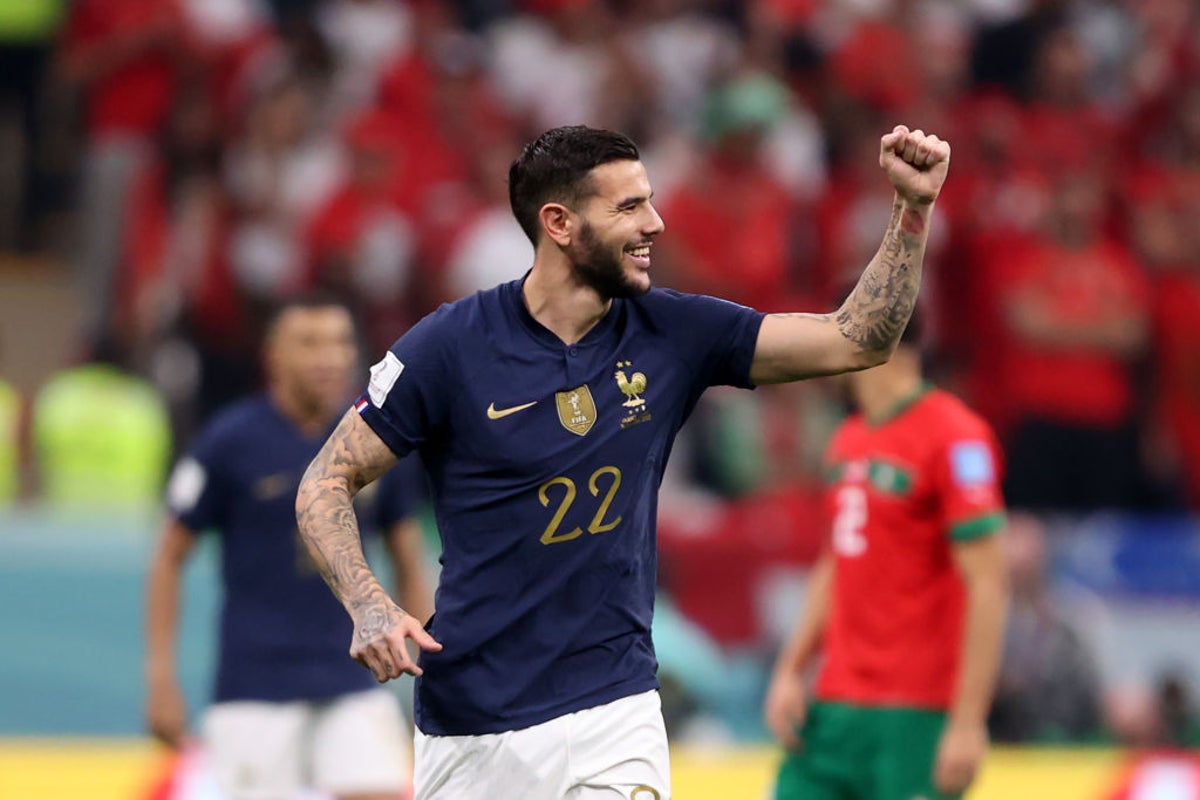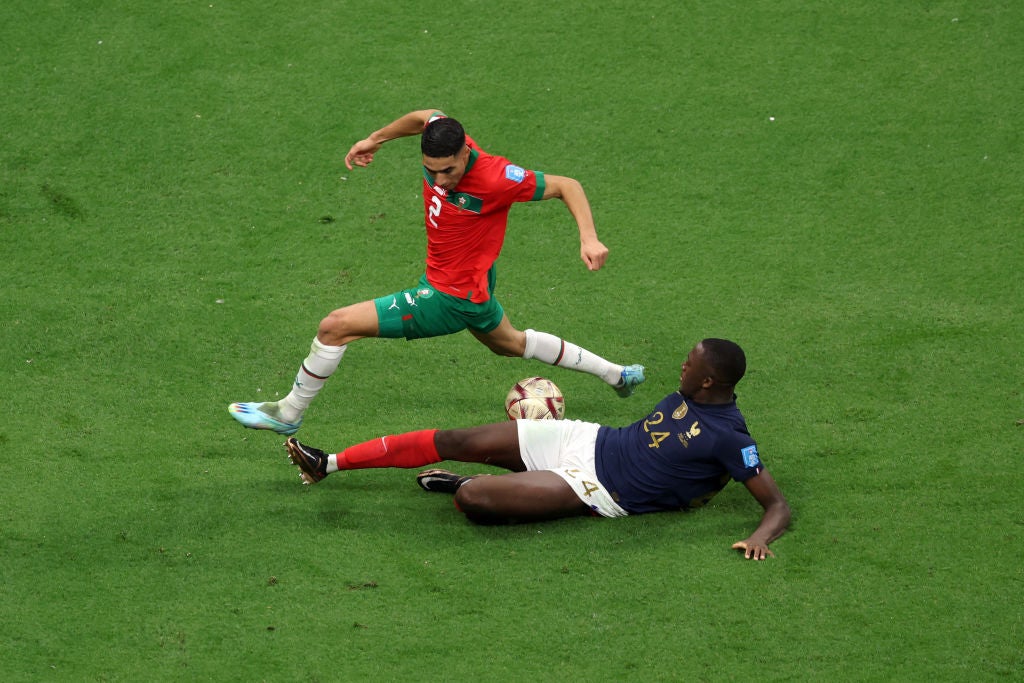
Jack Charlton was not even the best footballer in his own family but he was a World Cup winner. Theo Hernandez might not be the best left-back in his family but he has scored in a World Cup semi-final. In the process, he may make his injured brother a double World Cup winner.
Certainly Didier Deschamps began the World Cup 2022 by preferring Lucas Hernandez, the more defensively-solid sibling and a stalwart of the 2018-winning side. He advances to a second successive final in part thanks to the second choice, who was swiftly promoted when his brother damaged a cruciate ligament in the opening minutes of the tournament. He saw off Morocco thanks to a man who started the World Cup on the bench and one who began the evening as a replacement: Theo was joined on the scoresheet by Randal Kolo Muani, who received a late call-up for the World Cup when Christopher Nkunku was ruled out.
They are far from the only examples of how France have turned adversity into an advantage. Theo Hernandez’s adventurous streak explains why he was the first opponent to score against Morocco this World Cup: why, when Kylian Mbappe’s shot was blocked, he was on hand in the six-yard box to hook in a shot.
The younger Hernandez has added another dimension. He set up France’s first goal in Qatar, Adrien Rabiot’s equaliser against Australia. He crossed for Mbappe to open the scoring against Denmark. The older Hernandez, admittedly, might have kept Hakim Ziyech quieter as many of Morocco’s attacks were concentrated on their right flank. Theo could have conceded a penalty for a collision with Sofiane Boufal; instead, the winger was unfortunate to be booked. Deschamps’ initial blueprint of a defensive left-back had a certain logic when he has a destructive left winger, in Mbappe, who does not track back.
But his plans have required constant rethinking. Hernandez felt a fitting figure to propel France onwards. This has been their World Cup of the stand-in, of the understudies who have become invaluable. Perhaps no country enjoys such strength in depth in so many positions, but France have required it and it is remarkable how well some who might have been deputies have done.
Had Karim Benzema been fit, Olivier Giroud would have been on the bench, but he has scored four goals, produced a barnstorming display against Morocco and drilled a shot against the post. Were N’Golo Kante available, Aurelien Tchouameni would probably be a reserve: instead he is a commanding presence at the base of the midfield and, besides knocking Kante out of Deschamps’ first XI, should be a candidate for a place in the team of the tournament. If Paul Pogba were playing, Antoine Griezmann would probably not be operating in midfield but he deserves to figure on the shortlist for the Golden Ball. He has adapted so well to a deeper role that he made a string of crucial interventions in his penalty box.
But factor in the loss of Nkunku and Presnel Kimpembe and those six injuries would have ended the chances of many a side. Theirs could have been a forgivable failure, explained by lucklessness and a lengthy casualty list, but instead France advance to the final.
When injury did not waylay their players, illness did. Deschamps needed the reserves to the reserves, Youssouf Fofana in midfield and Ibrahima Konate at the back because Rabiot and Dayot Upamecano were sick.
But Konate conjured a goal-saving interception to deny Youssef En-Nesyri a tap-in. Impressive in the Champions League final in summer, he was similarly good in a World Cup semi-final. The loyalist in Deschamps will probably prefer Upamecano against Argentina if he recovers, but Konate presented a compelling case to start.

It is a dilemma that may bring Deschamps little sympathy from peers with lesser resources. No one else has such depth at centre-back as France; they could allow Aymeric Laporte to play for Spain and have few regrets. Even without Kimpembe and Upamecano, they still left William Saliba on the bench.
The winger Kolo Muani was summoned instead. Uncapped until September, his first international goal came with his first touch in what may prove only the second biggest game of his week. He joins an eclectic bunch. Apart from Zinedine Zidane, France’s other scorers in World Cup semi-finals since 1998 have been a right-back, a centre-back and a left-back, in Lilian Thuram, Samuel Umtiti and now Hernandez.
Their winning formula has tended to entail an unlikely scorer. Hernandez only had one previous international goal. Umtiti scored a mere four. Most remarkably, Thuram, in 142 caps, struck just twice: both against Croatia in the 1998 semi-final. It was not how many they scored, however, but when, and Theo Hernandez and Kolo Muani, who might have been watching on from the technical area and the sofa respectively, instead showed France’s second-string players could make them officially first in the world.







